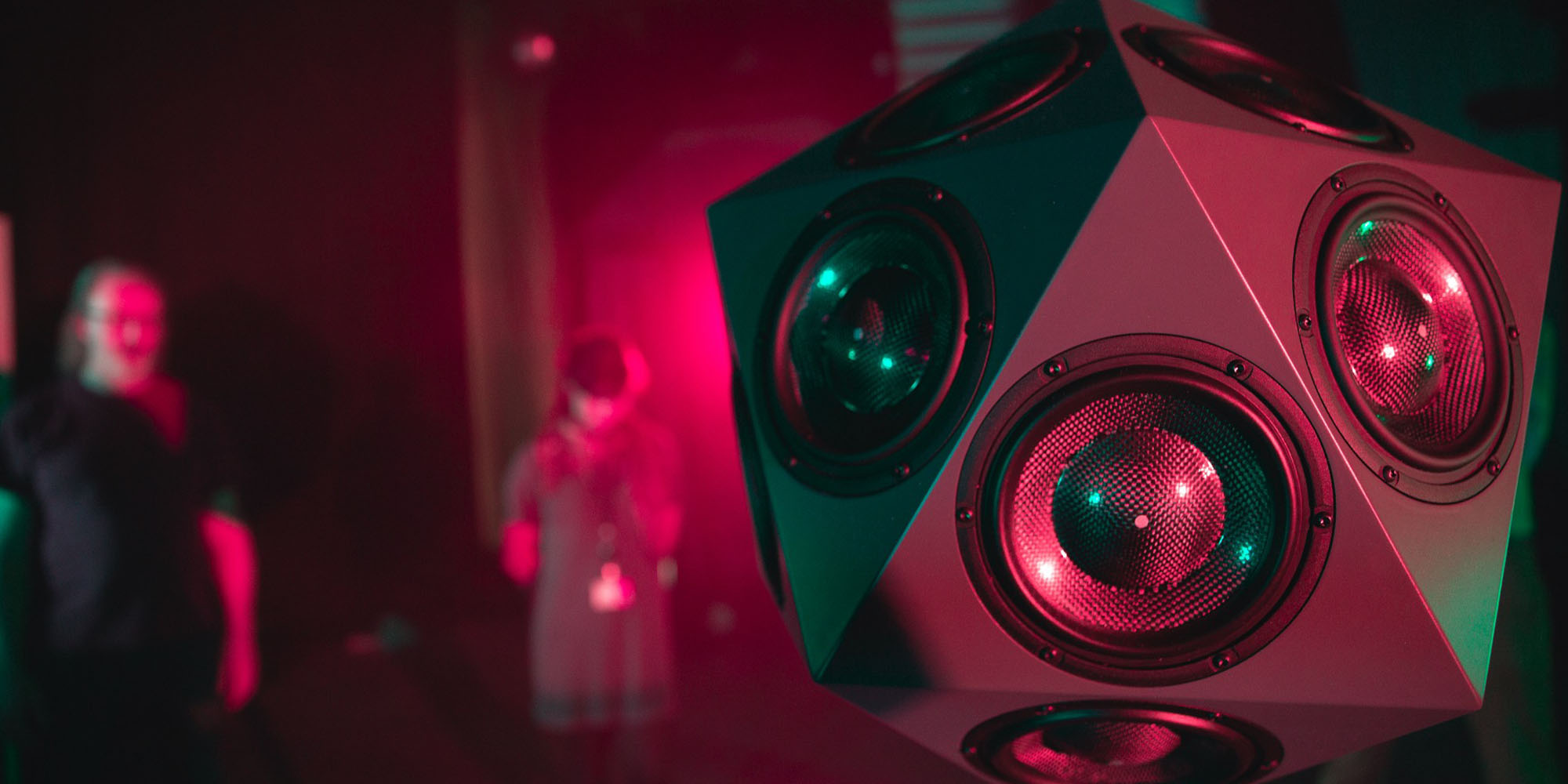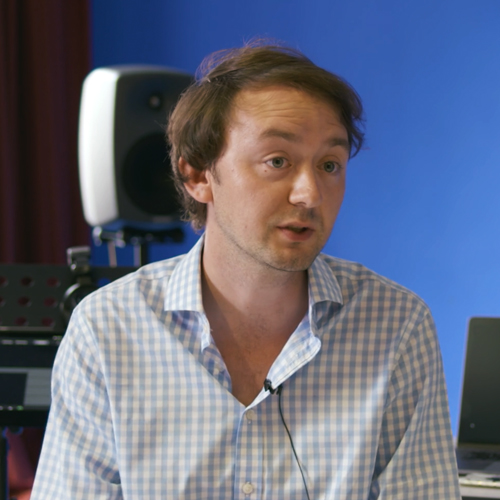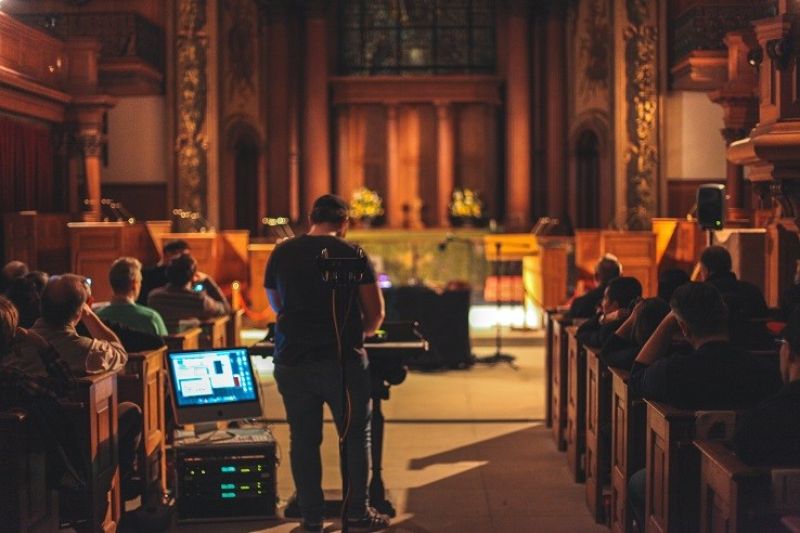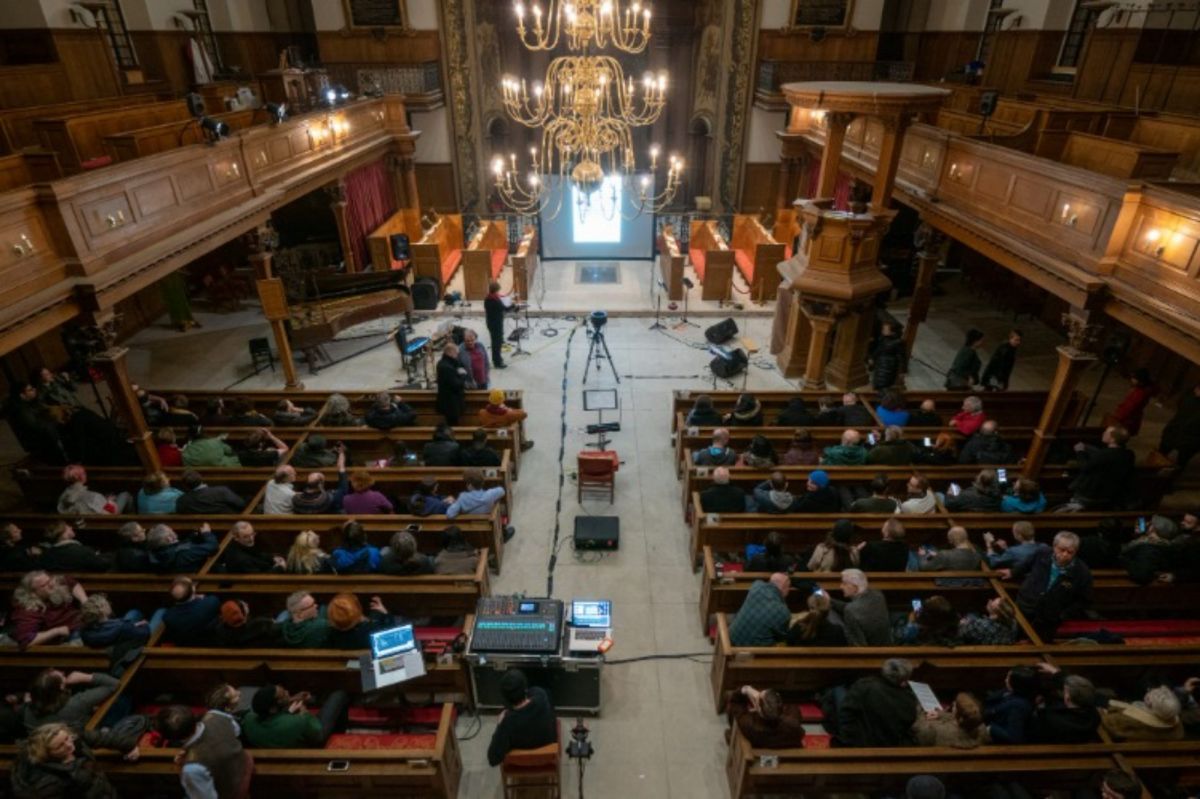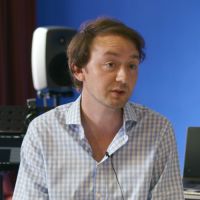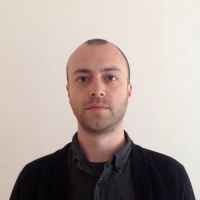Our vision
The SOUND/IMAGE Research Centre is an internationally recognised hub for creative industry professionals, bringing together musicians and sound designers, film makers, scientists, architects, artists and philosophers. Our shared goal is to reflect upon the relationships between the auditory and the visual, delivering insights and perspectives that can drive positive change and enrich lives.
We aim to:
- Develop new, inclusive experiences and forms of expression, bringing people together with new technologies to better understand and connect with one another and the environment.
- Provide innovative training and evidence-based guidance in new and emerging areas of music, immersive media, and digital heritage.
- Reflect upon, and explore the potential of, new immersive and virtual technologies using an arts and humanities frame, generating world-leading insights and reducing barriers for access.
- Demonstrate the significance of the creative arts, culture and social sciences in understanding the complexity of the human condition as it relates to wellbeing, social justice, environment, sustainability and place-making.
Our impact on the world
Experimental music is sometimes regarded as a curiosity for old men to listen to and scratch their chins. Unfortunately, the cliché has a grain of truth, with the electro-acoustic research community historically serving a narrow, predominantly white and male, audience. At the SOUND/IMAGE Research Centre, we want to break down barriers and widen access to experimental music, films and other audiovisual practices and technologies. Our strong and diverse team of researchers has a clear sense of how to deliver lasting and positive change in the real world.
Our primary objectives, aligned with the UN Sustainable Development Goals, are to:
- Construct a Thriving Environment for Ideas by fostering new research talent within a constructive, collaborative community.
- Enrich our Cultural Landscape and promote Open Civil Discourse, by increasing diversity and opening access to contemporary electronic arts.
- Foster a Heathier Society by applying practice research methods and knowledge to collaboratively strengthen discourses in scientific and healthcare contexts.
- Support Prosperous Economies by innovating in partnership with our creative and cultural industry partners.
We are already working towards our goals in many ways:
- We critique the contemporary experimental music scene through engagement with marginalised communities (Exploring Cultural Diversity in Experimental Sound). Key outputs include a book and a vinyl LP and digital download compiling the work of Black and South Asian practitioners.
- In collaboration with healthcare professionals, we explore the value of ‘place-making, sound walks’ in local neighbourhoods.
- We encourage practitioners, particularly women, to experiment with new electro-acoustic music technologies, such as the 20-sided IKO speaker for creating immersive soundscapes.
- Working with Drake Music, a disabled musicians charity, we challenge the assumptions around uniformity of hearing, revealing that many different ways of hearing exist and that it must be understood in a far more nuanced way.
- We inspire and support the sound designers and composers of the future through outputs, such as The Art of Sound, a book exploring the creative practice of world leading professionals including Academy Award-winner Nina Hartstone.
Who we are
An interdisciplinary approach
We believe that the most important advances often emerge at moments of disruption, and through exchanges of knowledge between practitioners from different fields. Our staff are therefore committed to working in highly interdisciplinary and practical ways.
Partners
We partner with colleagues across the Faculty of Law, Arts and Social Sciences and in other University departments, including collaborations with film-makers, acoustic artists and healthcare experts, among others.
Beyond the University, we are consolidating relationships with Royal Museums Greenwich, Trinity Laban, Maritime Greenwich World Heritage Site Executive, Crossness Pumping Station, Royal Parks and Greenwich Hospital via collaborative projects and R&D partnerships.
In parallel, we collaborate with established creative industry figures via co-curation of our concert series (e.g. with touch Records, Non-classical, Drake music) and through work with the film industry via the Cinema Audio Society and Association for Motion Picture Sound.
We welcome international partnerships too, and these including a unique artistic research exchange with IRCAM, a world-leading French research institute.
Funding
The work of the SOUND/IMAGE Research Centre is supported by Arts and Humanities Research Council and the British Academy, among others, and we are seeking further funding from the Leverhulme Trust, ESRC and the European Union.
Our research
A practice-focused approach
At the SOUND/IMAGE Research Centre our research seeks alternative ways of perceiving the world based on a direct, practical engagement with materials. This hands-on approach can yield insights and perspectives far beyond those arising from purely theoretical methods. Whereas those working in film or drama, may use music or moving images as materials to be laid on a narrative structure, we examine the materials themselves via a number of interlinked themes:
Heritage and Place
Working with international commercial partners and UNESCO heritage sites, we are demonstrating the contribution of new scanning tools and sonic approaches to the representation of space and place, and how these foster new engagements with place. These alternative perspectives can disrupt traditional assumptions, providing insights that decolonise institutions and help to engage new audiences.
Relevant activities include:
- The highly interdisciplinary work of the CAPTIVATE team, who apply LIDAR (Light Detection and Ranging) scanning to better understand underground spaces.
- A Sonic Palimpsest, an AHRC-funded project revisiting Chatham’s historic dockyards.
- A collaboration with the Brunel Museum, Rotherhithe and others.
Spatial Aesthetics and Immersive Environments
Here we offer a sonic frame to counteract traditionally visual framings of immersive media, and engage critical insights informing the wider application of spatial audio across the creative industries and into healthcare simulation. This work is supported by our cutting edge audiovisual facilities, including the Shared Hub for Immersive Future Technologies (SHIFT), a £1 million investment from the AHRC enabling collaborative co-production in creative and cultural research.
Relevant activities include:
- Bringing together our Loudspeaker Orchestra and SHIFT spaces with our new partners at the world leading French research institute IRCAM.
- Engagements with local community groups and partners, such as The Royal Observatory, and the production of course materials and resources for diverse stakeholders.
Communities & Cultural Access
This research aims to break down white male hegemonies in the contemporary arts and soundscape fields, opening up insights to the world via listening. Among our outputs are policy documents for arts organisations, venues and music unions, and a network of activities supporting diverse practitioners.
Relevant activities include:
- The AHRC-funded project Exploring Cultural Diversity in Experimental Sound, led by Dr Amit D. Patel, asks: Where are all the Black and South Asian experimental sound artists? Its outputs include a record and book of interviews.
- Research on curation and community access with Drake Music, Liquid Vibrations and Sound & Music.
Other strands of research we are pursuing and seek to expand include Sonic Phenomenologies and Expanded Cinemas.
Teaching and training
The SOUND/IMAGE Research Centre offers a research-informed curricula of high quality taught courses at different levels for students and professionals alike.
We have recently launched, or are involved in, three degrees:
- Music and Sound Production, BA Hons, designed to open students’ ears to a wide range of musical worlds, from music production to sound design and from film music to game sound.
- Music and Sound Design, MA, encouraging students to be forward-thinking and innovative and prepare them to respond both technically and creatively to diverse professional industry environments, or for further academic study.
- A bespoke PhD programme in Music and Sound Arts.
We also run short training courses in spatial-audio, also known as immersive audio or atmospheres.
News and events
The SOUND/IMAGE Research Centre runs several high-profile public events, which benefit creative industries, arts and cultural organisations, museums and third sector organisations, as well as the general public.
Highlights include:
- The international SOUND/IMAGE Festival, which has taken place annually since 2015, attracting delegates from six continents.
- Noise Colloquium, an annual two-day event, featuring talks, workshops and performances which explore noise as a concept and catalyst for creative production.
- Loudspeaker Orchestra Concert series, a significant trusted event in the London contemporary music scene.
We also exchange knowledge via other public events, short course workshops, creative industry panels, workshops and film screenings.
